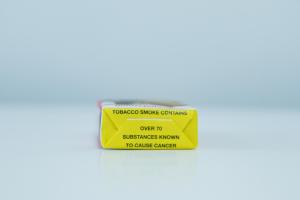Scaling up tobacco control measures in Africa
Pretoria ‒ Tobacco consumption in Africa presents complex public health, economic and environmental challenges and requires a multisectoral approach to prevention and control. Professor Lekan Ayo-Yusuf of the Africa Centre for Tobacco Industry Monitoring and Policy Research (ATIM) at the University of Pretoria discusses tobacco control measures in Africa.
What are the tobacco consumption trends in Africa?
Tobacco consumption in Africa varies across the continent but generally presents significant public health challenges. While smoking rates in some African countries remain relatively low compared to the global average, tobacco use is steadily increasing, particularly among young people and vulnerable populations. The factors contributing to this trend include aggressive marketing by tobacco companies, weak tobacco control policies and cultural acceptance of smoking in some communities.
Additionally, smokeless tobacco use, such as chewing tobacco and snuff, is prevalent in certain regions, contributing to overall tobacco consumption. These products often escape regulation and may be perceived as less harmful, leading to their widespread use.
The economic burden of tobacco-related illnesses is substantial in Africa and places strain on already limited health care resources. Moreover, tobacco farming in some African countries contributes to environmental degradation and labour exploitation.
What tobacco control measures exist in Africa?
Africa has made significant progress in tobacco control, especially since 2000. World Health Organization (WHO)’s Framework Convention on Tobacco Control (FCTC) entered into force in 2005 and spurred many countries to intensify their tobacco control efforts, marking a major change in awareness and action across the continent.
Key policies that include smoke-free laws, bans on tobacco advertising, promotion and sponsorship, introduction of warning labels and smoking cessation programmes, have been developed. However, the enforcement of these policies remains a significant challenge.
Bans on advertising, promotion and sponsorship have seen more traction, with greater enforcement, whereas public smoking bans are less consistently enforced. Smoking cessation programmes are less common, with only a few countries offering national guidelines and providing “quit advice” to all smokers.
Taxation, which is a policy with potential for significant impact, has not been fully leveraged. Only Mauritius has met the recommended guideline of taxation comprising 75% of the retail price. Other countries fall short, with South Africa at 50% and some countries below 40%, which makes tobacco relatively cheap.
What are the obstacles to the current tobacco control measures?
In Africa, tobacco control measures face significant obstacles rooted in economic dependence on the tobacco and the tobacco industry, particularly in countries where tobacco farming is a major source of foreign revenue. Multinational tobacco companies wield considerable economic power and leverage it to influence government policies, often diluting or obstructing tobacco control legislation. The countries from which the major multinational companies originate do little to hold companies to account outside of their own borders. Therefore, most fragile states in Africa with weak governance struggle to enforce regulations effectively, worsening the problem.
This subsequently leads to issues around illicit markets. If countries have a weak regulatory framework, it becomes easier for illicit trading which undermines tobacco control and the products become even cheaper. There are also discrepancies in policy between countries in the region, which enables illicit cross-border trading. This is why we need harmonization of policy across the region.
Furthermore, social acceptance of tobacco use, fuelled by industry marketing efforts, perpetuates the cycle of smoking initiation, especially among young people. Limited public awareness campaigns and educational initiatives have failed to counter industry misinformation about the risks of tobacco use. Additionally, the health system's inability to provide adequate smoking cessation services further hampers efforts to combat tobacco use.
Addressing these obstacles requires prioritizing tobacco control, strengthening regulatory frameworks including preventing tobacco industry interference with policy process, increasing public awareness and improving access to cessation services within the healthcare system.
How can tobacco control be scaled up?
Overall, a multifaceted approach involving international cooperation, regional harmonization of policies, robust legislation, public awareness and research is needed to scale up tobacco control efforts in Africa.
International cooperation and collaboration are paramount, especially in countering tobacco industry interference. Non-governmental organizations can play a crucial role in supporting governments facing industry pressure.
WHO has provided essential guidelines to countries that otherwise have no starting point for measure. Organisations such as Campaign for Tobacco-Free Kids provides legal support to countries facing litigation or threats from the tobacco industry, while ATIM provides training in monitoring tobacco industry with the aim of countering tobacco industry interference in policy process.
In addition, public awareness campaigns are vital but should be complemented by robust legislation and enforcement. Hence political commitment and advocacy are essential, requiring support from not only WHO, but also World Trade Organization, World Bank and others.
The exclusion of tobacco products from free trade agreements within Africa and other goods affecting public health is also crucial in scaling up tobacco control.
Finally, we need research and local data to evaluate the impact of tobacco control policies effectively and provide contextual evidence for their effectiveness.
WHO South Africa
Email: musinahamat [at] who.int (musinahamat[at]who[dot]int)
Tel: +27647569742
Communications and marketing officer
Tel: + 242 06 520 65 65 (WhatsApp)
Email: boakyeagyemangc [at] who.int (boakyeagyemangc[at]who[dot]int)



